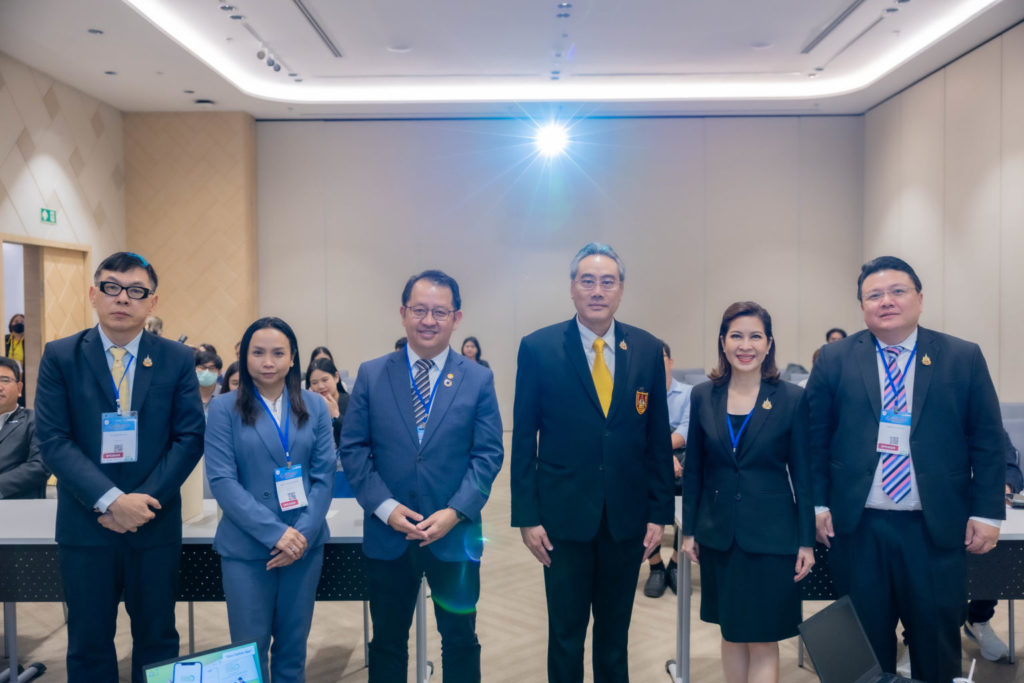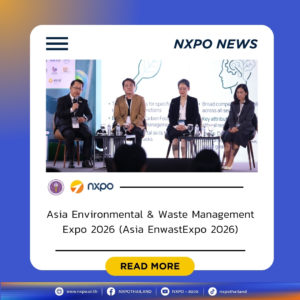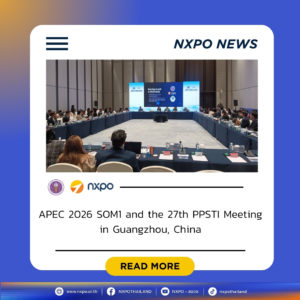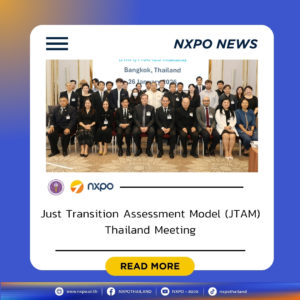Assoc. Prof. Wongkot Wongsapai, Vice President of NXPO, participated in a panel discussion titled “Public and Academic Sector Adaptation for Net Zero” on 24 July 2025. The session, held at the Queen Sirikit National Convention Center as part of the International Engineering Expo 2025, was organized by the Engineering Institute of Thailand under H.M. the King’s Patronage. It explored the roles of government, academia, and industry in climate change mitigation, greenhouse gas (GHG) reduction, and collaborative action toward Thailand’s net zero goals.
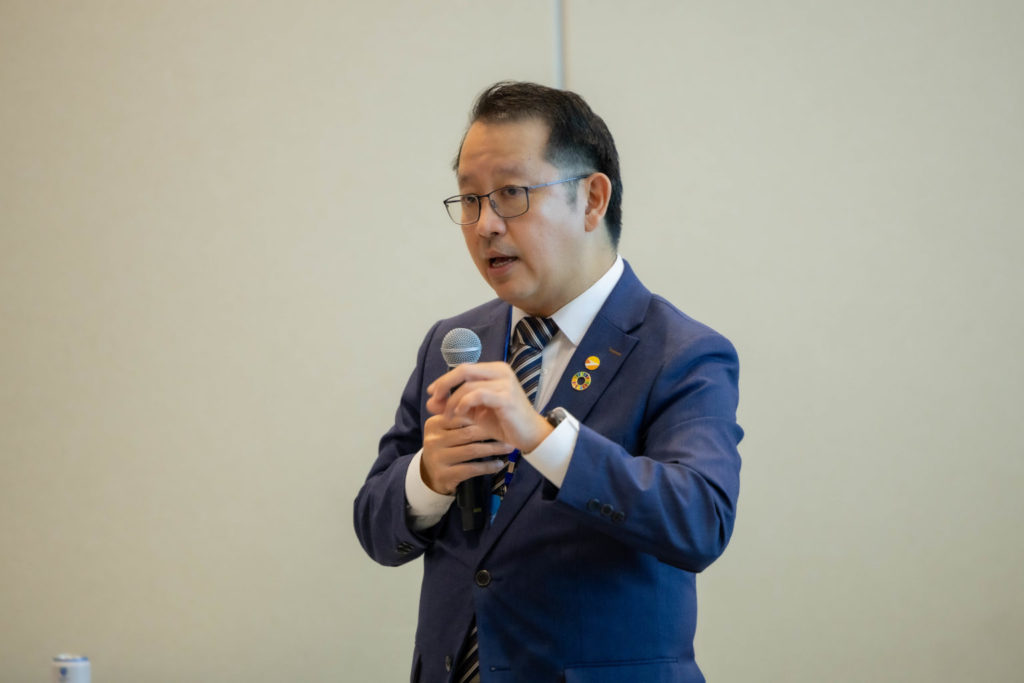
Assoc. Prof. Wongkot emphasized one of NXPO’s key targets: reducing GHG emissions by 10 million tons of carbon dioxide equivalent by 2027. A flagship initiative supporting this goal is the Net Zero Campus, which aims to institutionalize climate action within universities and extend their impact across other sectors through collaboration with multi-stakeholder networks.
NXPO’s contributions to climate action include the Saraburi Sandbox—a pilot initiative to develop a low-carbon ecosystem and model city in Saraburi Province. The project brings together 23 agencies across 7 ministries. In addition, NXPO has published a Climate Tech Landscape White Paper and established the Thailand Climate Business Network (Thai CBN)—a cross-sector coalition of 25 organizations from government, academia, industry, finance, and international partners—to accelerate Thailand’s net zero transition.
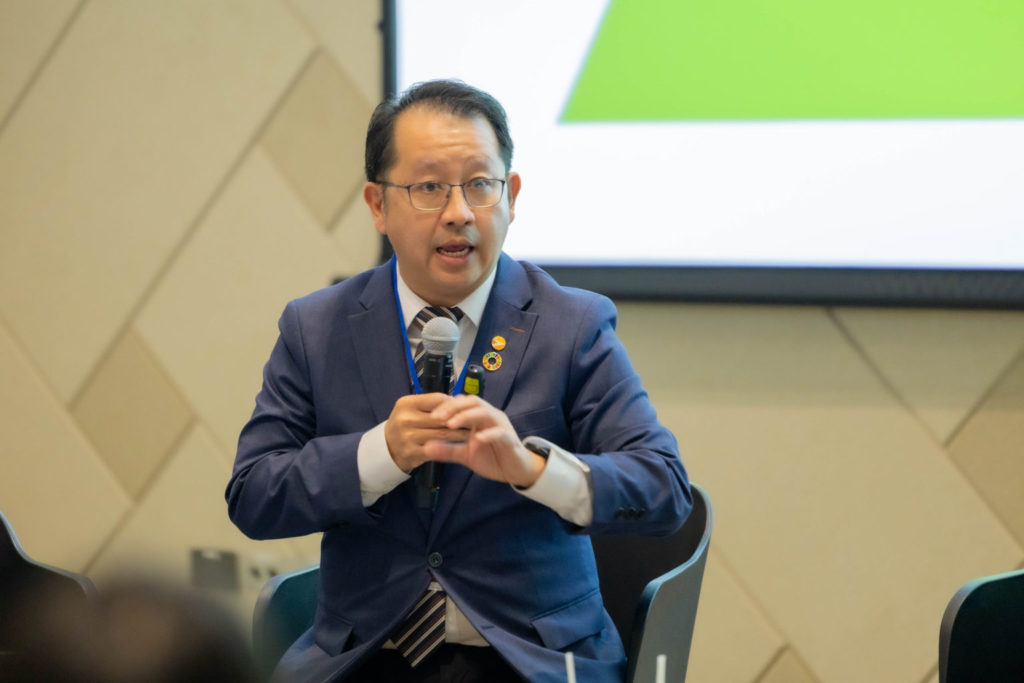
The Net Zero Campus initiative, implemented in partnership with the Department of Climate Change and Environment (DCCE) and a network of universities, aims to pilot the program in 50 universities. Each institution is undergoing assessments of its readiness, decarbonization plans, budgeting strategies, and implementation timelines to align with Thailand’s and the global 2050 net zero targets. The project is currently in its second phase, focusing on in-depth policy review and operational planning. This includes expanding GHG emissions and removal datasets through a digital platform, organizing regional roadshows, and developing a white paper to guide the transition. Progress was presented at the Sustainable University Network of Thailand (SUN Thailand) meeting held at Thaksin University’s Phatthalung campus in May 2025.
2029, a survey on skilled workforce demand across 10 target industries. The results highlight a projected need for over 13,372 professionals in sectors such as biofuels, biochemicals, biotechnology, the circular economy, and the green economy. Key emerging roles include materials engineers, ESG specialists, bioenergy and biochemical refinery technology scientists, biophysical chemists, and internal auditors. To support the growth of green careers, NXPO is undertaking skill mapping to define competency standards—particularly for roles such as sustainability development specialists and carbon footprint specialists.
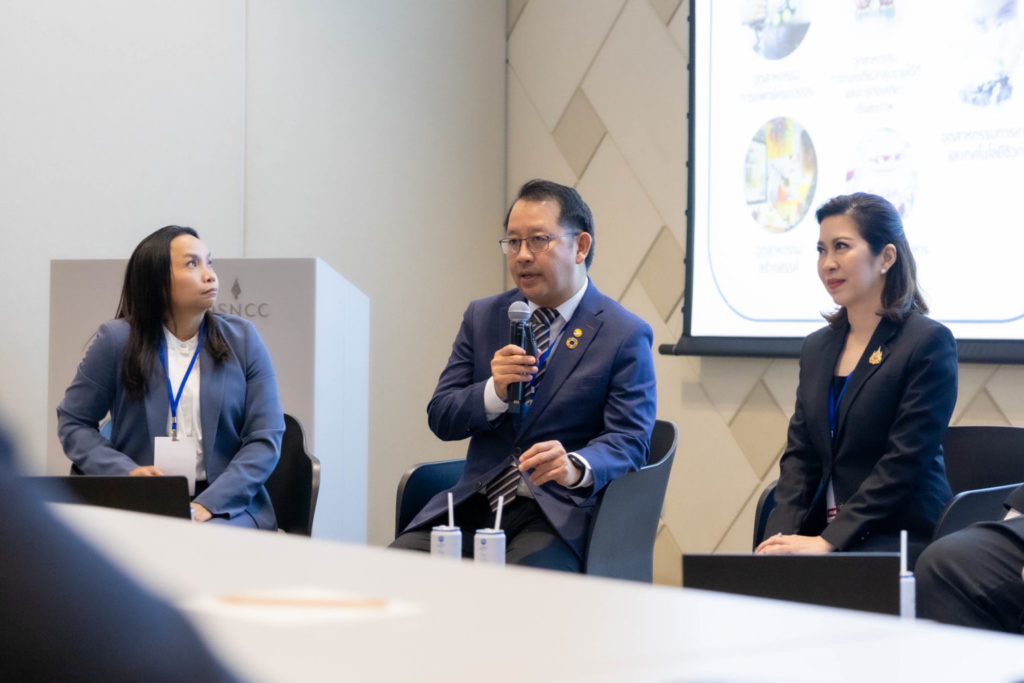
NXPO has conducted a study to identify the green skills and knowledge required in Thailand’s industrial sector. The findings categorize sustainability competencies into three levels:
- Basic skills: Emphasizing attitudes and soft skills;
- Intermediate skills: Cross-sectoral knowledge and competencies;
- Advanced skills: Sector-specific expertise.
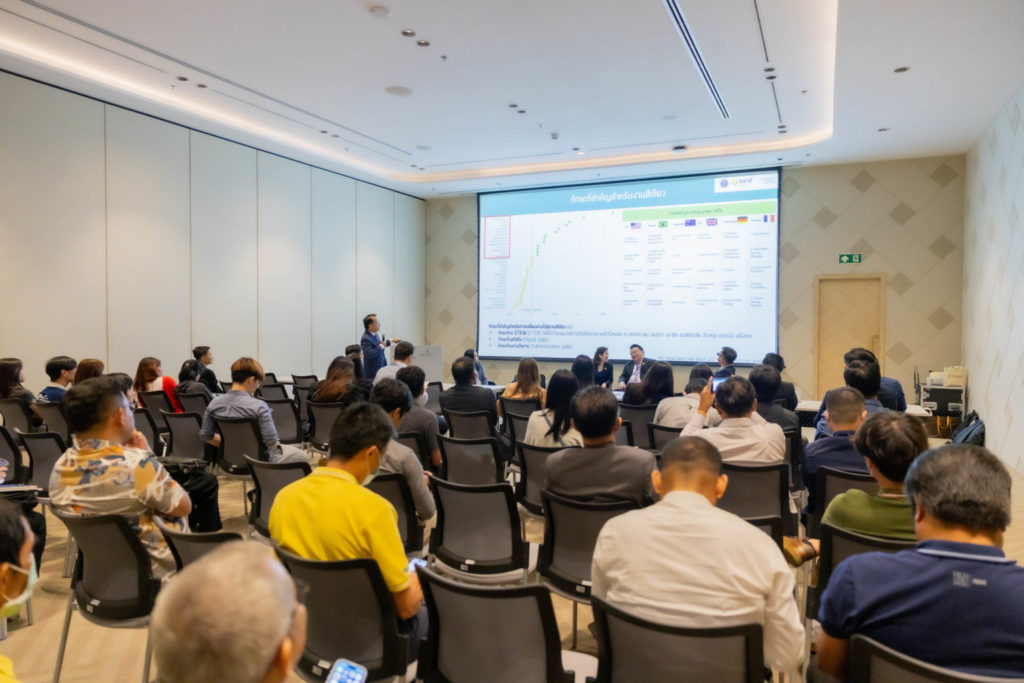
In closing, Assoc. Prof. Wongkot outlined 10 key enablers for driving sustainability transformation in Thailand’s industrial sector: 1) Human capital, 2) Cross-functional collaboration, 3) Collective responsibility across job roles, 4) Equal emphasis on building organizational culture and technical skills, 5) Starting with small projects to build momentum, 6) Scalable training programs, 7) Reskilling pathways for new sustainability roles, 8) Leadership and structural clarity, 9) Knowledge-sharing networks to accelerate change, and 10) External support mechanisms to reinforce the transition.
